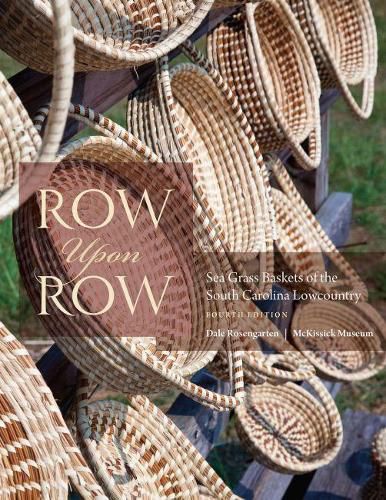Readings Newsletter
Become a Readings Member to make your shopping experience even easier.
Sign in or sign up for free!
You’re not far away from qualifying for FREE standard shipping within Australia
You’ve qualified for FREE standard shipping within Australia
The cart is loading…






Coiled grass baskets are icons of Gullah culture. From their roots in Africa, through their evolution on Lowcountry rice plantations, to their modern appreciation as art objects sought by collectors and tourists, these vessels are carriers of African American history and the African-inspired culture that took hold along the coast of South Carolina and neighboring states.Row Upon Row, the first comprehensive history of this folk art, remains a classic in the field. The fourth edition brings the narrative into the twenty-first century, with a chapter describing current challenges to the survival of the time-honored tradition. The artform continues to adapt to the changing consumer market, the availability of materials, economic opportunities, and most recently, the widening of the highway near the majority of basket stands. As globalization transforms the world, the coiled basket in all its iterations retains its power as a local symbol of individual identity and cultural distinction.
A preface is provided by Jane Przybysz, executive director of the McKissick Museum at the University of South Carolina.
$9.00 standard shipping within Australia
FREE standard shipping within Australia for orders over $100.00
Express & International shipping calculated at checkout
Coiled grass baskets are icons of Gullah culture. From their roots in Africa, through their evolution on Lowcountry rice plantations, to their modern appreciation as art objects sought by collectors and tourists, these vessels are carriers of African American history and the African-inspired culture that took hold along the coast of South Carolina and neighboring states.Row Upon Row, the first comprehensive history of this folk art, remains a classic in the field. The fourth edition brings the narrative into the twenty-first century, with a chapter describing current challenges to the survival of the time-honored tradition. The artform continues to adapt to the changing consumer market, the availability of materials, economic opportunities, and most recently, the widening of the highway near the majority of basket stands. As globalization transforms the world, the coiled basket in all its iterations retains its power as a local symbol of individual identity and cultural distinction.
A preface is provided by Jane Przybysz, executive director of the McKissick Museum at the University of South Carolina.